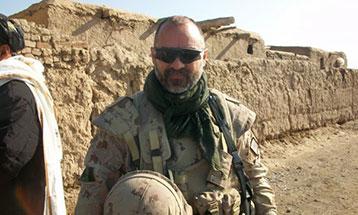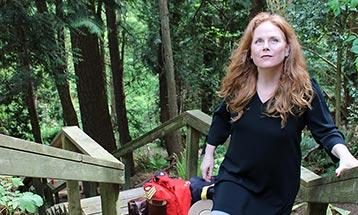Welcome to the Veterans Affairs Canada (VAC) Research Directorate.
Established in 2001, the Research Directorate supports Departmental decision makers and planners by supplying timely scientific evidence related to military and Veteran well-being. To achieve this, the Research team:
- conducts and supports research on Veteran and military health, including families;
- interprets and monitors Veteran health issues;
- develops and maintains partnerships that enhance interest in and expand research capacity in the critical area of military and Veteran health;
- provides methodological expertise; and
- transfers and exchanges knowledge both within VAC and with other partners/stakeholders.
Research may be conducted internally or acquired directly from or in partnership with external bodies such as through the Canadian Institute for Military and Veteran Health Research. Current research projects include work in the areas of identity and recognition, families, cannabis, psychiatric service dogs, homelessness, employment and equine assisted learning.
Our Life After Service Studies (LASS) program of research is designed to understand the transition experiences of Canadian Veterans and their families as they move from military to civilian life. Along with our partners at the Department of National Defence/Canadian Armed Forces and Statistics Canada, we are building an evidence base to inform programs and services that support the well-being of Canadian Veterans and their families. LASS 2016 represents the third cycle of this work which has drawn international attention and is highly regarded for its approach and groundbreaking work in the area of military to civilian transition. You can access the latest LASS reports.
As military and Veteran health issues become increasingly international in scope, we regularly share and collaborate with Veterans' administrations in allied countries. This includes participation in a NATO transition study group undertaking a comprehensive review of transition in each nation to identify country comparisons and best practices.
As military and Veteran health issues have become increasingly international in scope, we share and collaborate with Veterans' administrations in allied countries.
Knowledge transfer and exchange is another important component of our work. We are committed to ensuring that the findings from our research are available to the public so that we can contribute to national policy discussions that benefit Veterans, service providers and the broader Canadian population. We would encourage you to check out our easy to read one-page “Info Briefs”.
History
Research is not new at Veterans Affairs Canada. In the 1950s and 1960s, Veterans Affairs was a leader in Veteran health research in Canada. In fact, in 1950, Veterans Affairs had 112 individuals employed in research, including 20 doctors, 15 research fellows, 5 university staff, 35 research assistants, and 37 other personnel.
Research was one thrust of the first Veterans Charter, its purpose being to support excellence and leadership in Veteran care. There were university-Veterans Affairs partnerships across Canada through our health care facilities and a cadre of skilled Veteran health researchers across the country. The Department’s 1962 Annual Report describes 90 research studies underway at the time.
As we transferred our health care facilities in the 70s and 80s, research faded as a Departmental priority and so did Canada’s capacity in Veteran health research. Things picked up in the 1990s, resulting in the establishment of the Veterans Services Research Directorate in 2001. Ste. Anne’s Hospital, the only remaining hospital owned by the Department, has also played an important role in providing leadership in this area.
The increased tempo and intensity of military operations that began in the early 90s resulted in a renewed interest in military and Veteran health. For Veterans Affairs, the need for health research is essential to ensuring that appropriate lines of evidence are available to support policy and program decisions and development.
As the heath care needs of Canada’s aging war Veterans become more complex, and as younger Canadian Forces Veterans increasingly present with new and emerging health issues, the need for health research is taking on a new significance.


